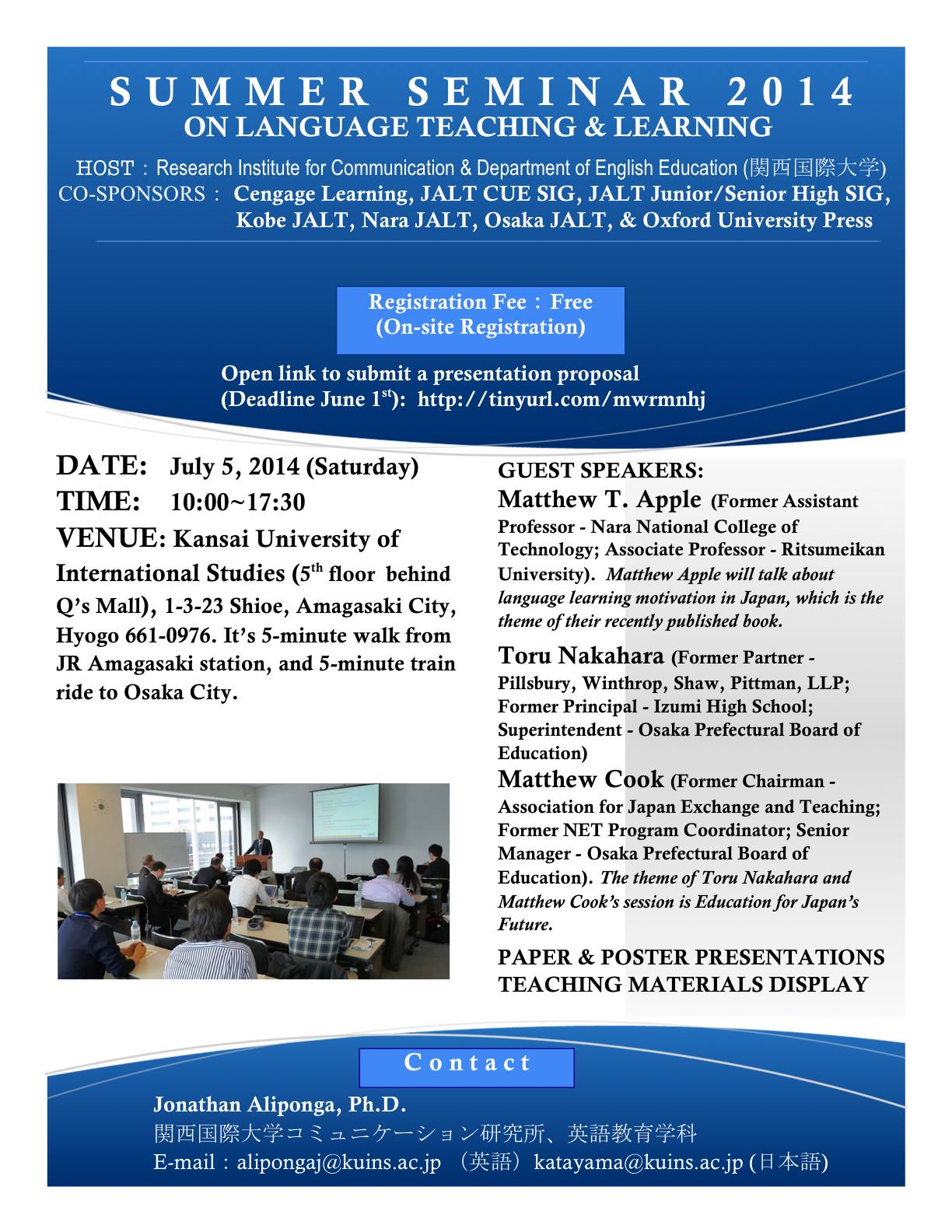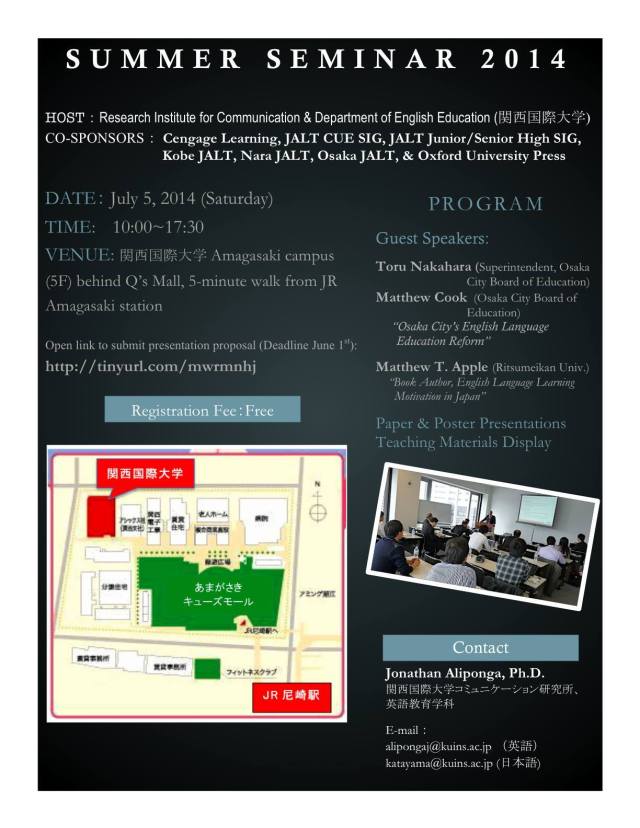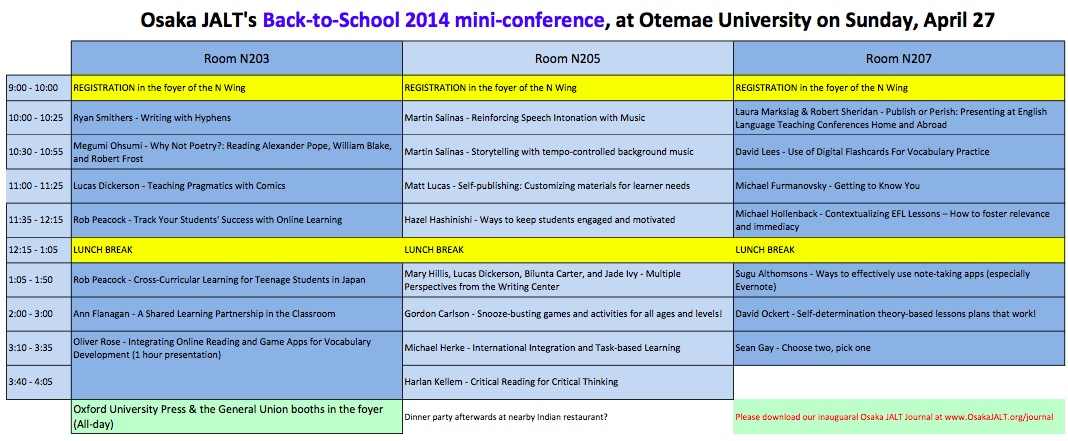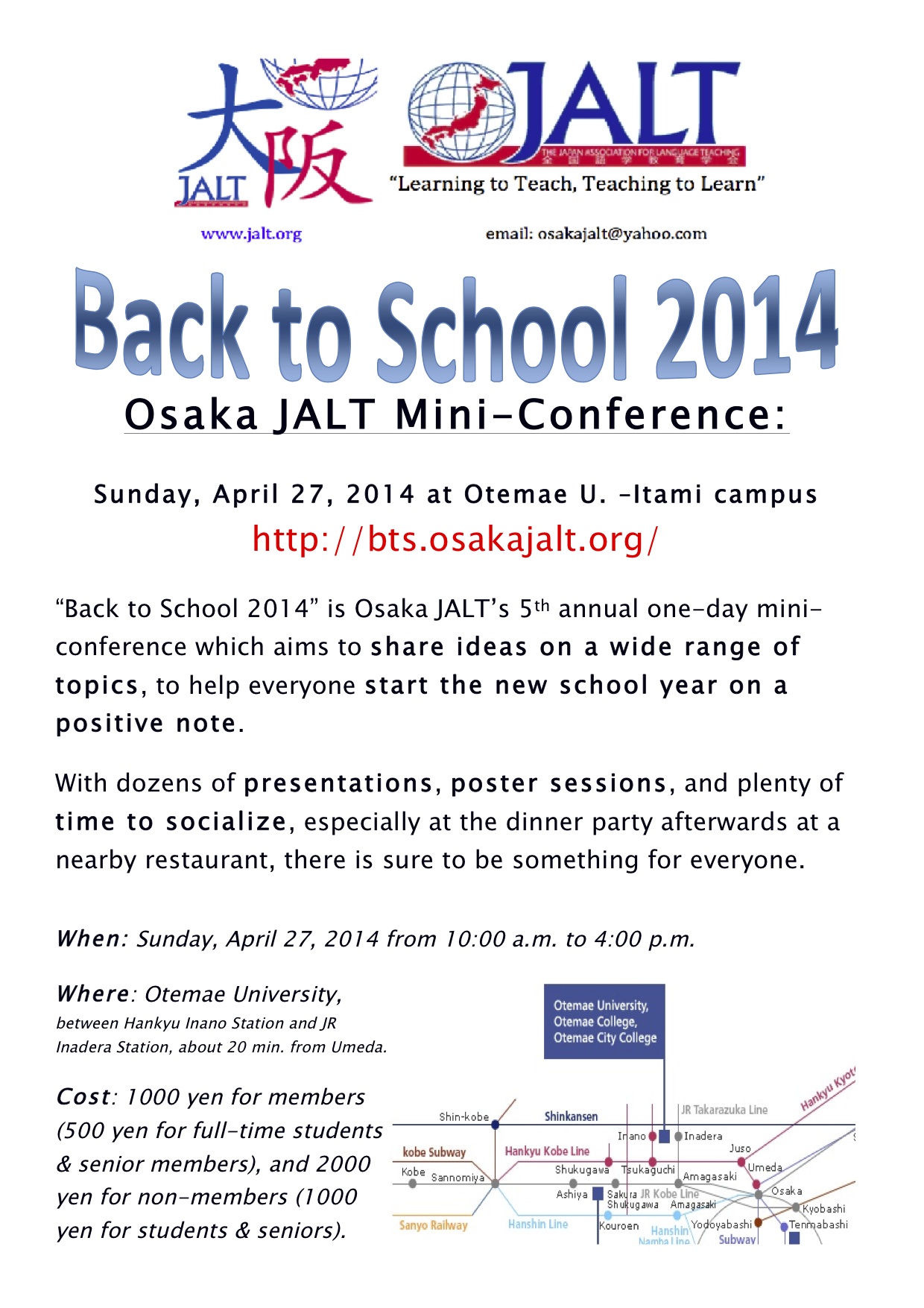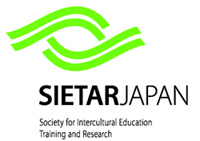Using the new Keynote on Mac and iOS -- at the Apple Store in Shinsaibashi
Using the new Keynote on Mac and iOS -- at the Apple Store in Shinsaibashi
Using Keynote in your lessons can help to make them more engaging and interesting for your students, and more fun, productive, and efficient for you. For people who aren't yet familiar with the new versions of Keynote on the Mac and iPad, or have never really used presentation software before, this hands-on workshop will cover the basics; getting started with built-in templates, simple builds and animations using text and images, cool transitions, and a few very special effects that you just can't get from chalk on a blackboard! This is a great opportunity to learn some easy, effective ideas that you can use in class right away.
Steve Paton and Malcolm Swanson are both English language teachers at universities in Fukuoka Prefecture. The workshop will be conducted in English, with limited assistance in Japanese available.
Seating is limited, so reserving a place is highly recommended. Please bring along your Mac or iPad with the latest version of Keynote installed so as to be able to participate more actively in the workshop. A limited number of MacBooks and iPads will be available, courtesy of the Apple Store, for those who can't bring one themselves. Contact us at Osakajalt@yahoo.com to reserve your seat and to let us know if you'd like to reserve an iPad or MacBook.
Dinner and drinks afterwards at a nearby izakaya for those interested.
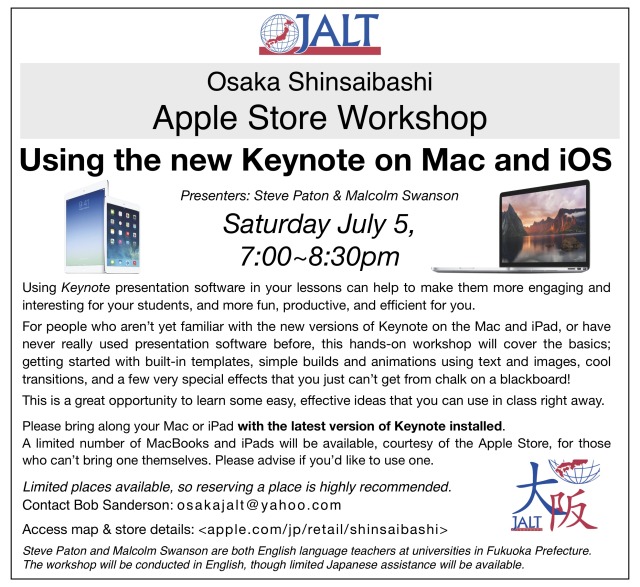

 Saturday, June 21, 2014 at 9:42AM
Saturday, June 21, 2014 at 9:42AM